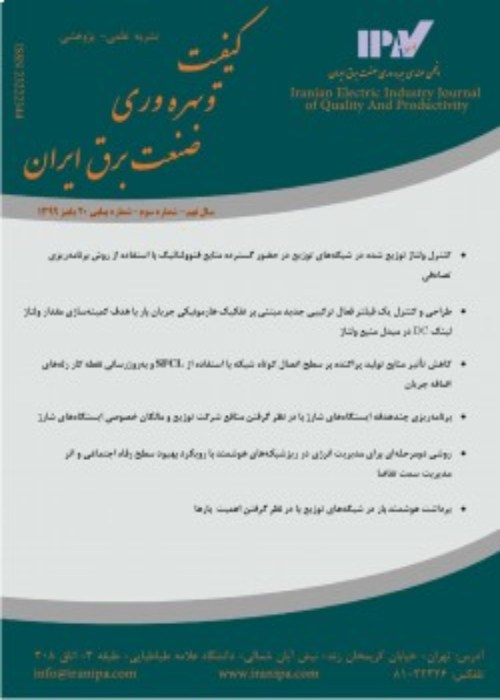Optimal Restoration of Active Distribution Systems for Enhancing Resilience Considering the Uncertainty of Renewable Sources
Smart grids all over the world aim at providing reliable and resilient power to customers. During major contingencies of large-scale natural disasters, Distributed Generations (DGs) play a key role in delivering a resilient and reliable supply of loads. Major natural disasters such as floods and hurricanes often cause lengthy interruptions in electricity distribution systems and degrade the level of service to end-users. The utilities have mainly focused on restoring the distribution system since the power grid is susceptible to natural disasters. A resilient systemchr('39')s primary purpose is to allow the restoration of out-of-service loads as soon as possible after an extreme event. The resilience of a power system can be defined as “the ability of the system to prepare and plan for absorbing the damage and adapting/recovering in order to prevent the impacts of similar events in the future”. Therefore, the resilience of a power system is briefly attributed to three aspects of prevention, survivability, and recovery. Improvements in any or all of these features can enhance the overall resilience of the power system. This paper presents a self-healing restoration algorithm for power distribution systems exposed to extreme natural disasters. Indeed, an improved restoration algorithm in distribution systems in the presence of renewable and dispatchable DGs is proposed for enhancing the survivability of out-of-service loads due to extreme events, like natural disasters. The algorithm can analyze the effects of multiple faults, which arise due to a low-probability, high-impact event like a natural disaster. In the presented method, an optimal strategy is introduced to restore maximum loads with minimum switching operations and maximum load restoration under fault conditions. In order to consider uncertain parameters, a stochastic scenario-based approach is considered and the expected values as objectives are minimized to consider the effect of all scenarios. In the proposed method, the Genetic Algorithm (GA) is utilized as a powerful algorithm in optimization and how to implement and solve the proposed model by the GA is introduced. An evaluation of the proposed approach is conducted through a typical case study. A modified IEEE 33-node system is considered for this reason. The simulated results indicate that in the presence of microgrids and an automated switching-based distribution system, the systemchr('39')s resilience is improved significantly. However, the present study did not address microgridschr('39') dynamic response. In the event of extreme natural disasters, utilities can use the proposed algorithm to improve the recovery of out-of-service loads.
- حق عضویت دریافتی صرف حمایت از نشریات عضو و نگهداری، تکمیل و توسعه مگیران میشود.
- پرداخت حق اشتراک و دانلود مقالات اجازه بازنشر آن در سایر رسانههای چاپی و دیجیتال را به کاربر نمیدهد.


